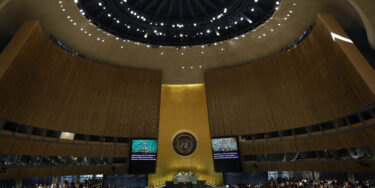Zika, disease of the poor, may not change abortion in Brazil
10.02.16
(Economic Rights / Sexual and Reproductive Health and Rights / Tradition, Culture, Religion)
Six months pregnant with her first child, Eritania Maria has a rash and a mild fever, symptoms of the Zika virus linked to brain deformities in newborn children in Brazil. But the 17-year-old is too scared to take a test to confirm if she has Zika.
Like other women in the slums of Recife, which squat on stilts over mosquito-ridden marshland in northeast Brazil, Maria has few options if her child develops microcephaly, the condition marked by an abnormally small head and underdeveloped brain that has been linked to Zika.
Brazil has amongst the toughest abortion laws in the world and is culturally conservative. Even if she wanted an illegal abortion and could afford one, Maria is too heavily pregnant for a doctor to risk it. So she prefers not to know.
“I’m too scared of finding out my baby will be sick,” she told Reuters, her belly poking out from beneath a yellow top.
The Zika outbreak has revived the debate about easing abortion laws but Maria’s case highlights a gap between campaigners and U.N. officials calling for change and Brazil’s poor, who are worst affected by the mosquito-borne virus yet tend to be anti-abortion.
Add a conservative Congress packed with Evangelical Christians staunchly opposed to easing restrictions, plus the difficulty of identifying microcephaly early enough to safely abort, and hopes for change seem likely to be frustrated.
As with many countries in mostly Roman Catholic Latin America, Brazil has outlawed abortion except in cases of rape, when the mother’s life is at risk or the child is too sick to survive.
An estimated 850,000 women in Brazil have illegal abortions every year, many under dangerous conditions. They can face up to 3 years in prison although in practice, jail terms are extremely rare.
With two-thirds of the population Catholic and support for Evangelicals growing fast, polls show Brazilians oppose changing the law. A survey by pollster VoxPopuli in 2010 showed that 82 percent reject decriminalization, while a Datafolha poll the same year put the figure at 72 percent.
Vandson Holanda, head of health for the Catholic Church in Brazil’s northeast, said there was no chance the Church would shift its position on abortion because of Zika.




